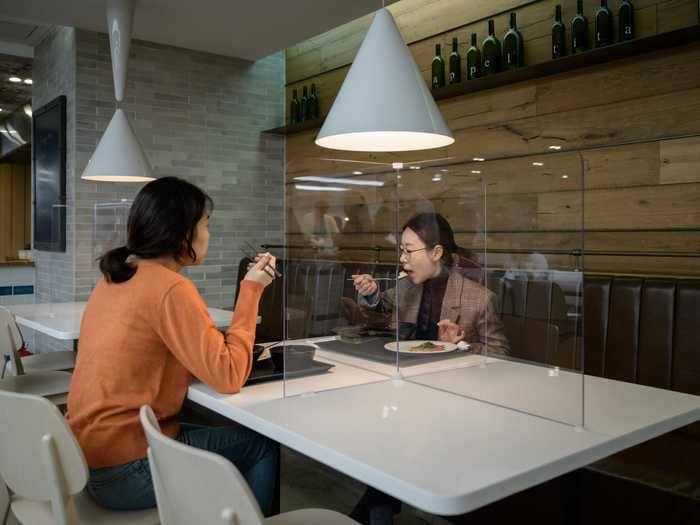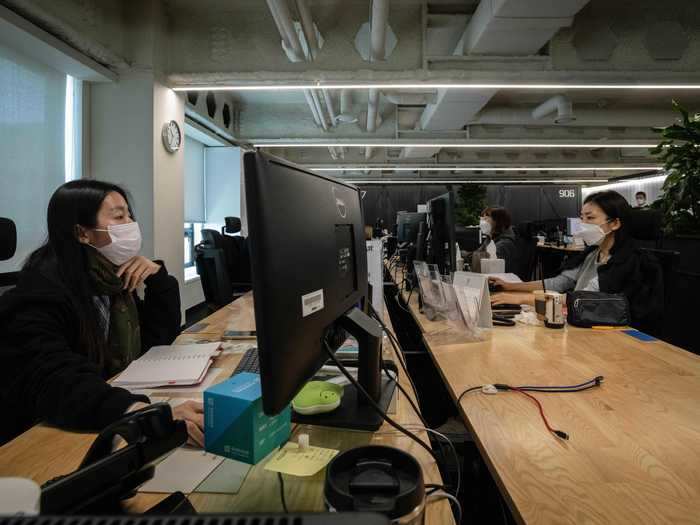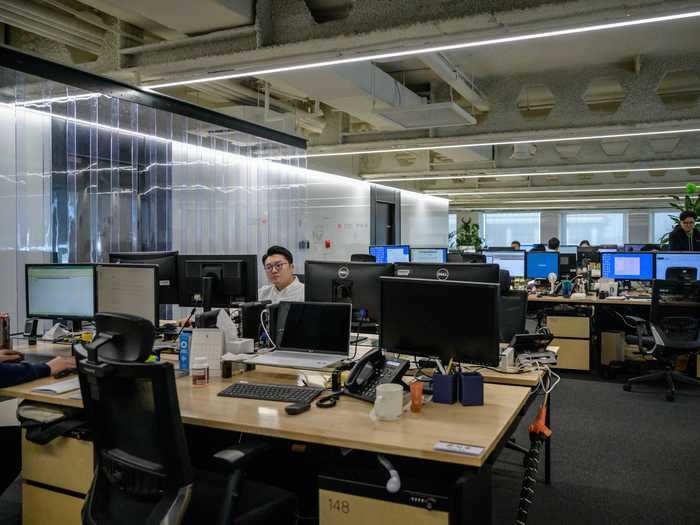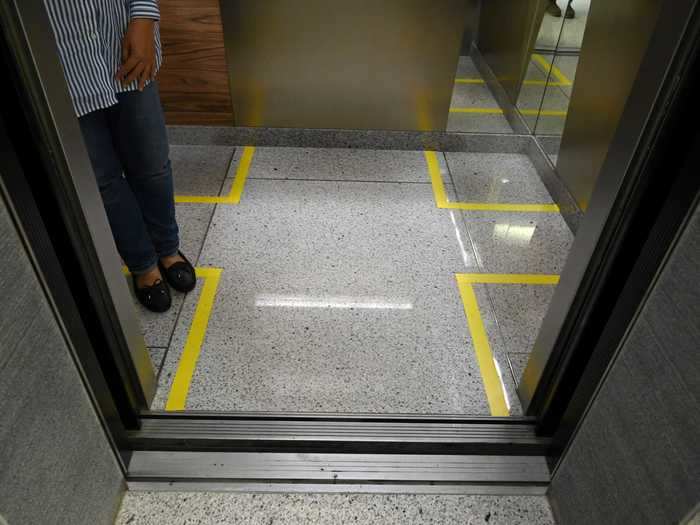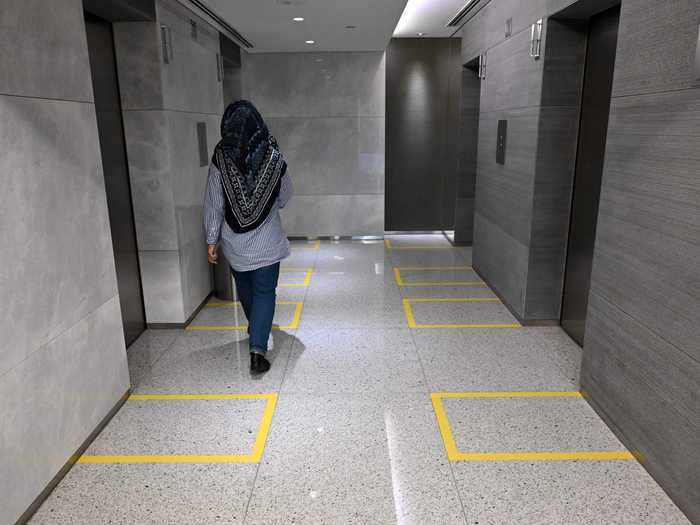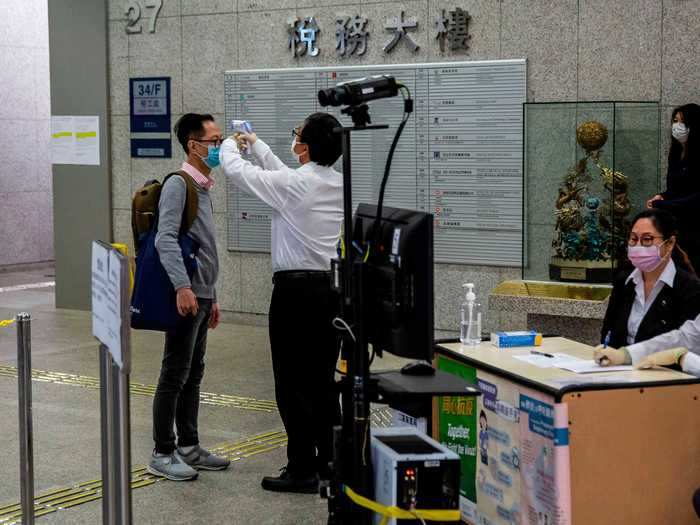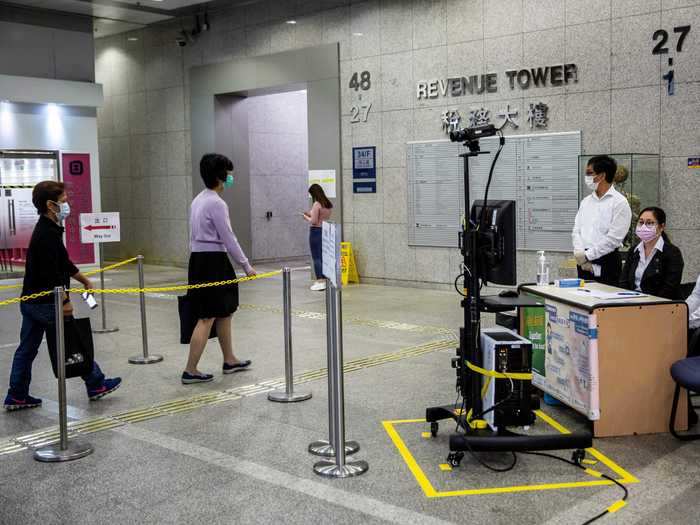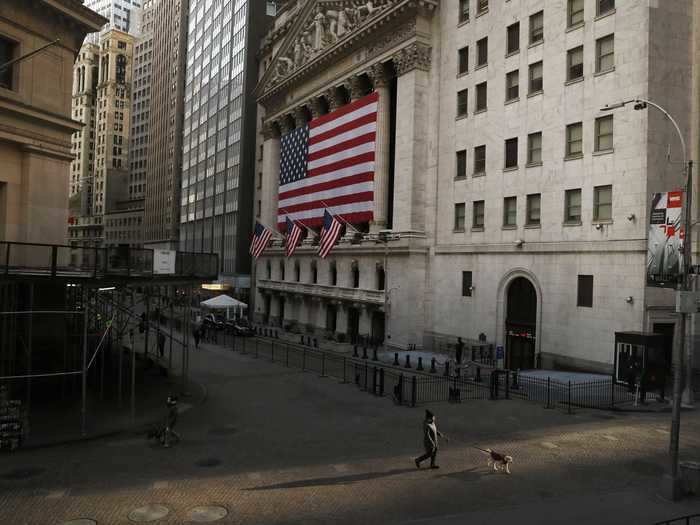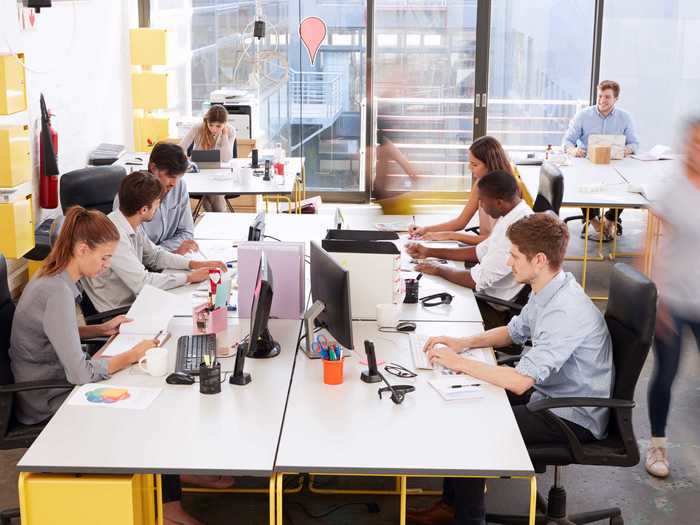Two employees eat in their office's cafeteria behind protective screens in Seoul, South Korea.Ed Jones/AFP via Getty Images
- As countries reopen slowly, employers grapple with the question of how to go back to the workplace safely.
- Office buildings in Hong Kong have started checking employees' temperatures in the lobby, while office buildings in Singapore are now limiting the number of people that can take a single elevator.
- In South Korea, open office floor plans are still in use, but with more space between each worker. Communal areas, like cafeterias, are also in use but have new protective screens set up at dining tables.
- These pictures show what going back to an office could look like in the US, from longer waits in the elevator bank to more personal space in typically densely packed offices.
- Visit Business Insider's homepage for more stories.
Read the original article on
Business Insider
Schedule changes: The company implemented staggered lunch breaks to have fewer people in the cafeteria at once. South Korea relaxed lockdown restrictions on May 6.
The cafeteria at the offices of Hyundai Card in Seoul, South Korea on April 9.
Ed Jones/AFP via Getty Images
Protective screens between employees: In the office's cafeteria, diners sit behind protective screens while they eat.
Employees sit behind protective screens as they eat in the cafeteria at the offices of Hyundai Card in Seoul, South Korea on April 9.
Ed Jones/AFP via Getty Images
Empty seats between employees: Employees at Hyundai Card practice physical distancing by leaving an empty desk in between each occupied workspace.
Employees working at the offices of Hyundai Card in Seoul, South Korea on April 9.
Ed Jones/AFP via Getty Images
Reduced and restructured working hours: Hyundai Card, a credit card company based in Seoul, has an open office layout. It is now shifting employees' working hours so the workplace is never at capacity.
Employees working at the offices of Hyundai Card in Seoul, South Korea on April 9.
Ed Jones/AFP via Getty Images
Reimagined floor plans: Open office floor plans in Seoul, South Korea previously highlighted how easy it is for the coronavirus to spread in certain workspaces. One densely-packed call center had an outbreak that affected 44% of the floor in March.
The call center's Seoul floor plan. The blue seats indicate the desks of people with confirmed coronavirus cases.
Korea Centers for Disease Control and Prevention
Designated spots in elevators: To avoid overcrowding, there is also yellow tape on the floor inside the elevators denoting where employees should stand on the way up to their office space.
An elevator at an office building in Singapore on March 31.
Roslan Rahman/AFP via Getty Images
Social distancing in elevator banks: Singapore will remain on lockdown until June 1, but high-rise office buildings there are prepared for social distancing, with yellow tape marking where employees should stand in elevator banks.
An elevator bank at an office building in Singapore on March 31.
Roslan Rahman/AFP via Getty Images
The standardization of masks: While Hong Kong never underwent a strict lockdown, it did limit public gatherings, encouraged social distancing, and adjusted immigration policies. As it gradually reopens further, most people wear masks.
Security officers monitor a temperature checkpoint in a government office building in Hong Kong on March 2.
Isaac Lawrence/AFP via Getty Images
Temperature checks: In Hong Kong, temperature checks have been widespread since January. Here, government workers get their temperatures checked by security in the office building's lobby before heading up to their workspaces.
Security officers monitor a temperature checkpoint in a government office building in Hong Kong on March 2.
Isaac Lawrence/AFP via Getty Images
While major US cities remain under lockdown, offices elsewhere have started to open back up, and they offer valuable insight into what life might soon look like in American offices, too.
An empty Financial District in New York City amid the coronavirus pandemic.
REUTERS/Lucas Jackson
The coronavirus pandemic stands to change many details of ordinary life for people around the world — including what the workplace looks like.
The view of a street in New York City with largely vacated office buildings amid the coronavirus pandemic.
Mike Segar/Reuters
Many American offices have pivoted from structured cubicles to open floor plans over the past few years. A layout, which, for better or worse, often has employees sitting in close proximity to each other.
An example of a busy open plan office.
Monkey Business Images/Shutterstock


